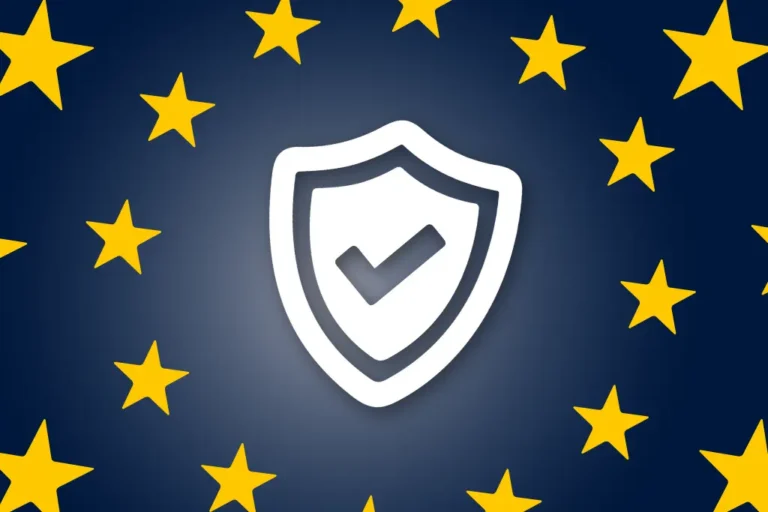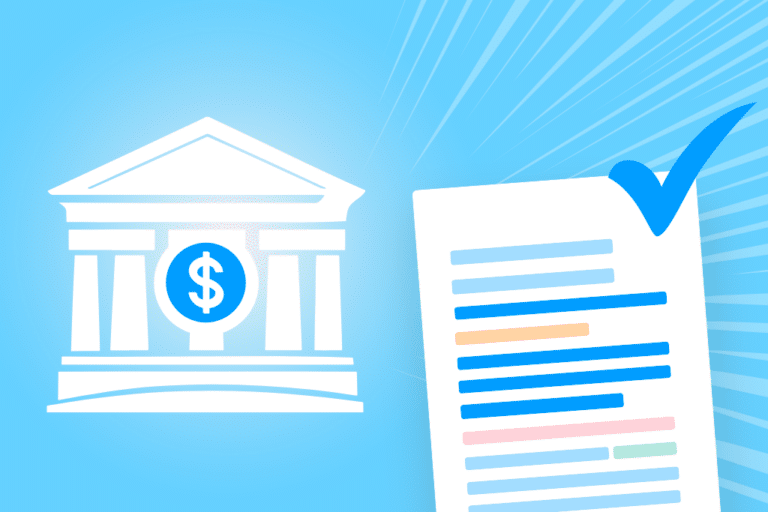Due diligence is a cornerstone of effective risk management and informed decision-making in business. Whether evaluating a potential acquisition, ensuring compliance with regulatory frameworks, or analyzing financial statements, it provides the essential insights needed to protect companies from potential risks.
This guide will explore the importance of due diligence, the challenges associated with traditional methods, and how technology is transforming the way businesses approach this critical process. Understanding the steps and best practices involved allows companies to ensure their due diligence efforts are thorough, efficient, and aligned with organizational goals.
What Is Due Diligence?
In business, due diligence plays a vital role in safeguarding operations and ensuring sound decision-making. It goes beyond surface-level checks, providing a detailed understanding of potential risks and opportunities.
Definition and Objectives
Due diligence is a structured process of investigation and analysis performed to assess risks and validate critical information about a business, individual, or transaction. It serves as an essential step in ensuring compliance, identifying potential issues, and making informed decisions. For businesses, this process helps manage risks and align operations with both legal and market requirements.
Industries Which Benefit from Due Diligence
Various sectors rely on due diligence for their operations. In corporate finance, companies use this process to assess mergers and acquisitions or conduct supply chain evaluations. Similarly, real estate transactions depend on due diligence to analyze property records and legal terms. In compliance management, businesses implement it to ensure adherence to regulations and prevent risks like fraud or data breaches.
The Main Types of Due Diligence
Due diligence takes many forms, each tailored to address specific areas of a company’s operations and risks. From examining financial records to assessing legal compliance and operational efficiency, these types of diligence processes are designed to provide a comprehensive understanding of key business aspects.
Financial Due Diligence
Financial due diligence involves reviewing financial records to assess the fiscal health of a company. It includes analyzing accounting data, assets and liabilities, and revenue streams to determine whether an investment or acquisition aligns with the company’s objectives.
Legal Due Diligence
Legal due diligence examines contracts, regulatory compliance, and legal risks. This process ensures businesses meet their obligations under applicable laws and avoid liabilities which might arise from unresolved legal issues.
Commercial and Operational Due Diligence
These types of due diligence focus on evaluating a company’s business model, market positioning, and operational efficiency. They help businesses assess whether a target company’s strategies and processes align with their long-term goals.
Enhanced Due Diligence
Enhanced due diligence is applied in high-risk scenarios, particularly when environmental, social, and governance (ESG) factors are involved. It requires deeper analysis to ensure compliance with stringent regulations and expectations.
Key Challenges in Traditional Due Diligence
While due diligence is essential for risk management and informed decision-making, traditional approaches often face significant hurdles. Outdated methods and tools sometimes make it difficult for businesses to conduct thorough and efficient reviews, leading to potential risks and inefficiencies.
Managing Fragmented Data
When businesses use multiple platforms for document sharing and communication, critical information sometimes becomes disorganized. This increases the likelihood of overlooking important details, which might result in compliance risks or financial losses.
Time-Intensive Manual Reviews
Traditional due diligence processes often involve significant manual effort, including reviewing contracts and other documents. These methods consume time and resources, reducing efficiency.
Evolving ESG Standards
As ESG regulations evolve, businesses must address growing expectations related to sustainability, labor practices, and corporate governance. Meeting these standards is sometimes challenging, especially without streamlined processes to track and report relevant data.
The Due Diligence Process: A Step-by-Step Overview
Conducting due diligence involves a structured approach to ensure thorough evaluation and effective decision-making. Each step in the process is designed to address specific aspects of a transaction, from collecting relevant data to ongoing monitoring. Here are the essential steps businesses must follow to perform due diligence effectively:
- Information Collection: This first step involves gathering comprehensive data about the target company, property, or transaction. Accurate and complete information is critical to evaluate potential risks.
- Risk Identification and Assessment: This step focuses on identifying risks in areas such as finances, compliance, and operations. Categorizing risks based on severity and likelihood enables businesses to prioritize their efforts and allocate resources effectively.
- Validation and Reporting: Validation ensures the accuracy of collected information through cross-referencing and audits. Detailed reporting provides stakeholders with a clear understanding of the findings and their implications.
- Continuous Oversight: Due diligence does not end with a single review. Businesses must maintain ongoing oversight to address changes in market conditions, regulatory requirements, or operational needs.
Transforming Due Diligence with Technology
As businesses face increasingly complex due diligence requirements, technology provides solutions to streamline and enhance the process. Modern tools improve efficiency, accuracy, and collaboration by centralizing data management and automating key tasks.
Centralized Tools for Governance
Solutions like Board Portal, CLM (Contract Lifecycle Management), and DiliTrust Governance suite simplify governance by providing centralized platforms for data management. These tools enable real-time collaboration and ensure sensitive information remains secure.
AI-Driven Enhancements
Artificial intelligence enhances due diligence by automating document analysis and risk scoring. For example, AI is able to extract key information from financial records or identify compliance gaps in contracts.
Criteria for Selecting the Right Solution
When choosing technology, businesses should prioritize tools which are scalable, compliant with international standards, and intuitive for all users. Conducting internal assessments to understand team needs is essential for successful implementation.
Best Practices for Optimized Due Diligence
To ensure effective due diligence, businesses must follow structured approaches which enhance accuracy, collaboration, and alignment with organizational goals. Implementing best practices not only streamlines the process but also minimizes risks and supports long-term success.
The following strategies are key for optimizing due diligence efforts:
- Establishing Clear Protocols: Defining structured procedures ensures consistency and reduces errors. Protocols should outline each step of the due diligence process, from data collection to reporting.
- Involving Key Stakeholders: Collaboration is critical. Including relevant departments – such as legal, financial, and operational teams – guarantees all perspectives are considered.
- Aligning Tools with Organizational Goals: Investing in governance software which aligns with corporate objectives enhances efficiency. Training team members to use these tools effectively is equally important.
Real-World Applications of Due Diligence
Due diligence is more than a theoretical process; it plays a practical and indispensable role in various business scenarios. From evaluating potential investments to ensuring compliance with regulatory standards, this process helps companies manage risks and make informed decisions.
Supporting Mergers and Acquisitions
In mergers or acquisitions, due diligence helps identify risks such as undisclosed liabilities or operational inefficiencies. This process ensures investments are sound and aligned with strategic goals.
Facilitating Real Estate Transactions
In real estate, due diligence involves reviewing property records, legal terms, and market conditions. These evaluations help businesses avoid issues related to ownership disputes or regulatory non-compliance.
Enhancing ESG Reporting
For companies focusing on ESG compliance, due diligence guarantees transparency and accountability. By maintaining accurate records and tracking performance, businesses are able to meet regulatory expectations and strengthen their reputation.
The Future of Due Diligence
As the business environment evolves, due diligence practices must adapt to meet emerging challenges and opportunities. Advances in technology, the growing focus on ESG criteria, and the need for compliance with global standards are reshaping the way companies conduct this essential process.
Advances in Technology
The integration of artificial intelligence and machine learning is transforming due diligence. These technologies enable faster, more accurate analysis, reducing the time and resources required for complex reviews.
ESG Integration
As ESG factors gain prominence, businesses will increasingly incorporate these criteria into their due diligence processes. This shift underscores the importance of sustainability and ethical practices in corporate governance.
Global Compliance Standards
Aligning with international standards is becoming a priority for companies operating across borders. Compliance with frameworks like GDPR (General Data Protection Regulation) and ISO (International Organization for Standardization) ensures businesses meet legal and market requirements worldwide.
Due diligence is a fundamental aspect of effective business management, providing the tools and processes required to assess risks, ensure compliance, and guide strategic decision-making. Through the adoption of structured practices, the use of modern technology such as AI and centralized governance platforms, and proactive adaptation to evolving ESG and compliance standards, businesses enhance their due diligence efforts. These advancements empower organizations to manage complexities with assurance, fostering sustainable growth and long-term success.


